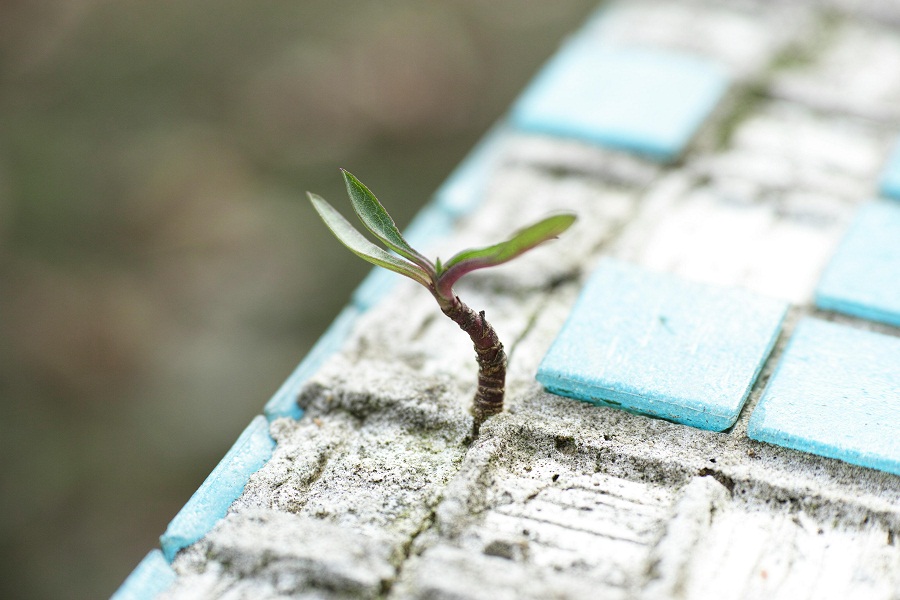
Published :
Updated :

"At my lowest point, writing became my only escape. I started with poetry. Every word I scribbled on paper was a way of telling myself I was still here, still breathing. Later, I turned to journaling. Keeping a diary saved me. It was the only space where I could pour out my pain without judgment. Over time, I realised that through writing, whether poems or diary entries, I was speaking to myself, reminding myself that my life still had worth. Those words didn't heal me instantly, but they gave me enough strength to last another day," said an anonymous survivor.
"I did not quit because I don't want to leave others in guilt. There was no hope in that time, but now, when I see myself doing what I love to do, it makes me feel happy," a university student from Chittagong, sharing his experience of coming back.
"What's the point of living?" "Everyone would be better without me." At one point in your life, you may have found these questions echoing in your mind. However, people show resilience to the circumstances of life and find a ray of light in the darkness. On the occasion of suicide prevention day, there are stories of resilience as well.
Life is a constant process of change, and one inevitable truth of this change is death. From birth, humans inch toward that final horizon, where life and death intertwine as natural counterparts, with death marking the natural conclusion of life.
In Bangladesh, suicide exists as a serious public health problem. Every year, 10 to 14 thousand people in Bangladesh die by suicide, making it the second leading cause of death in the country after road accidents.
According to recent data, an average of 56 people die by suicide daily in the country. The prevalence is particularly alarming among adolescents, young adults, and women, raising concerns among experts.
Suicide rates among women aged 10 to 29 are the highest in South Asia. A 2024 study revealed that 513 students died by suicide in 2023, with 61 per cent being female. In 2024, tragically, 49.4 per cent of students who died by suicide were school students.
These numbers are not just statistics. Each one represents a story unfinished, a voice silenced too soon, and families left struggling to pick up pieces of grief that never quite fit back together.
Suicide's roots run deep, entwining mental, social, and personal threads. Key culprits include depression, anxiety disorders, bipolar disorder, schizophrenia, societal pressures, family or relational rifts, financial woes, job stress, loneliness, social detachment, trauma, abuse (physical or emotional), sexual harassment, loss of kin, or substance addiction. Spotting the signs early can be lifesaving. Self-isolation, shunning daily routines, withdrawing from loved ones, an eerie, sudden calm (hinting at resolved plans), persistent sadness or guilt, feelings of worthlessness.
Echoing this complexity, Associate Professor Dr. Helal Uddin Ahmed from the National Institute of Mental Health shares profound insights, "suicide is rising worldwide, and no single cause is to blame; it's a web of multiple factors. Suppose we can identify these triggers, nurture mental well-being, and swiftly treat emerging symptoms. In that case, we can prevent a significant portion of suicides."
"In our country, 92 to 94 per cent of those with mental illnesses go untreated. We have only about 350 psychiatrists and over 500 psychologists, far too few for our needs. We must prioritise mental health care and treatment," he adds.
"There have been times when we call 'hitting the rock bottom'- and I have gone through this phase in life. Finding love, making friends, and working towards a goal - even I didn't feel it was possible to get out of bed. I felt that suicide would be the best option to stop feeling like a loser in life. But whenever I tried to write a suicide note, my eyes used to become teary, thinking about all the feelings I would have to let go of by stopping my heartbeat. The nights when I tried to put a pillow over my face and see if I could do any better, I always realised that it was not easy. Maybe it would be easier to live. I know that journeys or stories would be different. Still, to date, I feel like this," says Madhukori (pseudonym), who once wanted to write a suicide note, now a writer crafting countless stories. "Now I know that nothing matters, but I would rather enjoy the nothingness of life than take my own life. I think one day I stopped taking death as the solution and started living again," Madhukori adds.
Bringing conversations about suicide into the light can play a crucial role in breaking down stigma. When people talk openly and non-judgmentally about mental health and suicide, it really stimulates a sense of belonging and connectedness.
Suicide does not discriminate, as it can affect anybody at any time, and behind every statistic is a person, and there are many loved ones left behind learning to navigate life without them.
Breaking this silence is not optional; it is essential. Talking about suicide openly and non-judgmentally chips away at the stigma, offering people a sense of belonging.
Creating accessible mental health care, embedding counselling services in schools and universities, training teachers and parents to spot warning signs, and investing in professional care are all steps that can make a difference.
At its heart, prevention begins with compassion. Sometimes, the most potent intervention is simply listening, without interruption, without judgment, without rushing to 'fix' the problem. When someone feels truly heard, they also feel less alone.


 For all latest news, follow The Financial Express Google News channel.
For all latest news, follow The Financial Express Google News channel.